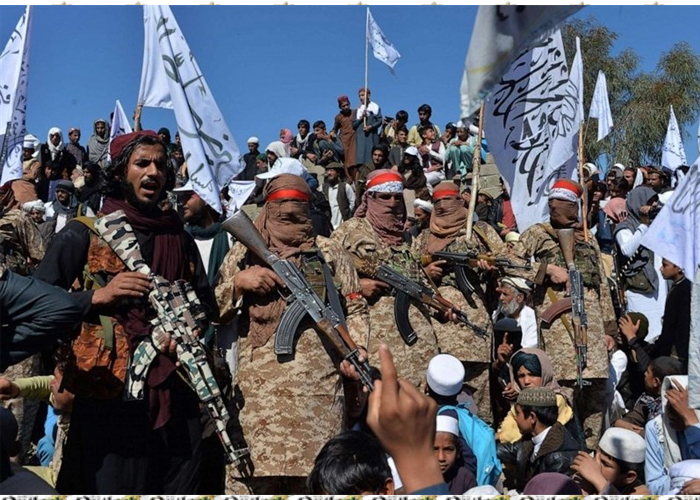The recent escalation in violence has led to countless of fatalities. Both warring parties, mainly the Taliban militants, have sustained heavy casualties. Afghan civilians also suffered and paid sacrifices in the wake of unmitigated insurgency. A sense of fear and disappointment looms large in the public air.
The offensives shrink space for the meaningful negotiations, which were stalled in the Qatari capital of Doha since the Taliban are seeking military deal. With ongoing violence and bloodshed, the people of Afghanistan lost their trust in the peace process, mainly as the Taliban have turned down the multiple calls for reduction in violence and declaration of ceasefire.
Worst, Iranian and Pakistani media are seeking to de-uglify the Taliban’s harsh practices against the people. Notwithstanding the Taliban’s violence and bloodshed, the media persist that the Taliban are part of Afghanistan’s political system and their practices are not as cruel as those of the Islamic State group. Talking in support of the Taliban group and desensitizing its act of terror, the Iranian and Pakistani media have triggered public concerns. Afghans are outraged as a result. On the other hand, regional and global stakeholders, mainly the United States, are concerned about the security vacuum emerging in the wake of troop pullout. US former Secretary of Defense Robert Gates in the Bush administration said, “The result in Afghanistan is still important in the interests of the United States. We turned our backs on Afghanistan after the withdrawal of Soviet troop in 1989. We should not do this again after the withdrawal of our last troops. We must reassure Afghans of our continued support and continue to do so in every way possible.” Earlier, a number of US high-ranking officials also expressed their concerns about the hasty withdrawal of US troops from the country, saying that the Taliban and their affiliates would fill the vacuum. In their agreement signed last year with the Trump administration, the Taliban leadership said that they would reduce violence and resolve the tension through negotiations. However, they walked away from the negotiating table, which fill the air with disappointment. Currently, civilian casualties are the main cause for concern in Afghanistan. In her recent statements, the chairperson of Independent Human Rights Commission Shaharzad Akbar said, “When the US-Taliban talks initially started, there was skepticism and fear mainly due to lack of transparency but there was also a spark of hope about reduced violence, peace talks, gradual demilitarization. Now, we are seeing intensified violence, further militarization across Afghanistan.” She added, “The ordinary Afghans, Afghan women, consistently called for ceasefire and negotiations, they have/will also be first victims of further violence. All stakeholders must do more to end violence.”
It is self-explanatory that the role regional and global stakeholder is highly significant in the peace process. If regional actors put their weight behind the talks, the deadlock will be brokered. However, there does not seem a strong determination. Despite high-level exchanges between Kabul and Islamabad, the bonhomie between the two sides did not last long. As a result, Afghan-Pak officials have resumed the blame game. Afghan officials have reiterated that the Taliban’s leadership councils are on the Pakistani soil. They said that the Taliban are taking Afghan military vehicles to Pakistan. But Islamabad is seeking to deny the claims, made by Afghan officials. In the meantime, Islamabad appears not to be willing to pressure the Taliban leadership to continue the peace talks.
Overall, casualties increased to a great extent in recent months. Reports say that over 6,000 Taliban fighters were killed last month. It was also reported that 638 military personnel and civilians were killed and 1,060 others wound during the same month. With this in mind, the ongoing war and violence will simply lead to casualties without any positive results. The talks-talks and fight-fight will not lead to any positive results. The Taliban also believe that they will not win through military deal as public mobilization is taking place against the Taliban, which will be a big obstacle to the Taliban’s victory. Meanwhile, public mobilization indicates that the people are against the Taliban’s Islamic Emirate as well as their radical ideology regarding public rights and freedoms, mainly those of women. It is believed that the Taliban understand that the people are against their ideology and their Emirate system, but they never confess this fact. The Taliban have no choice other than returning to the negotiating table. The second option will be only to face the consequences. To be part of the political system and have a share in the government, the Taliban should resume talks and reduce violence.
Home » Opinion » Military Deal not Solution to Ongoing Conflict
Military Deal not Solution to Ongoing Conflict
| Hujjatullah Zia

